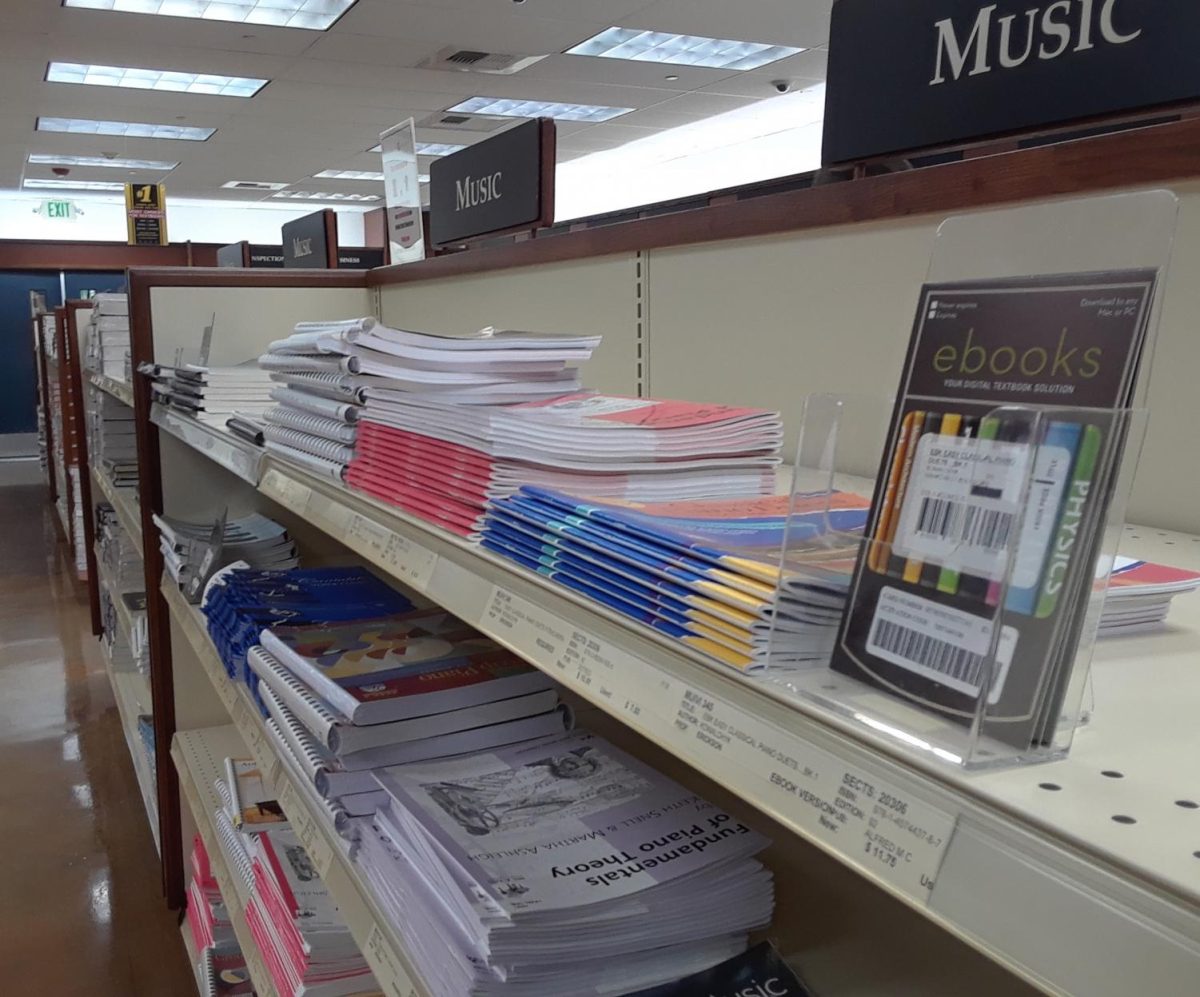Online textbooks have many benefits for students
Ebooks and textbooks alike are available in the CRC bookstore.
California Gov. Jerry Brown approved Assembly Bill 2385 on Aug. 27, which is aimed at reducing textbook costs. AB 2385 will help students by having textbook publishers and college campuses encourage faculty to “consider practices in selecting textbooks that will result in the lowest costs to students,” according to the bill.
There is a big push for more online content to be used on college campuses, including online textbooks and labs for classes.
Some students said they are hesitant about using online textbooks given past problems they’ve had with them.
“It was not user friendly in the slightest,” said 27-year-old veterinary technician major Kaitlyn Routan. “Just bad formatting in general.”
Other students said they recognize the benefits of getting online textbooks as opposed to buying physical textbooks, including how much interaction there is with an online text.
“I thought it was interesting because it still gives a lesson plan of where you can find everything,” said 20-year-old nutrition major Brian Jimenez. “It was good to use because it was very interactive and similar to a mini slideshow.”
Other students like how online textbooks allow them to access features that help them with understanding the lessons and concepts better.
“I like online textbooks,” said 31-year-old business administration Major Mai Nguyen. “There are helpful features like practice quizzes to let you know when you got something wrong to inform you where you are in the class.”
Some faculty, including journalism professor Timi Poeppelman, are on board with using online textbooks for her classes because she said it it allows her to make students’ lives easier.
Poeppelman said that she tries to have as few books for her classes as possible so that students don’t spend too much for textbooks.
Students are looking for methods on saving textbook costs in different shapes and forms as well. A recent 2016 study conducted by the Florida Virtual Campus found that among the 40 public colleges and universities in Florida, 30 percent of students said they chose to rent online textbooks in order to save costs.
Distance Education Coordinator Gregory Beyrer said that he “personally advocates for lower textbook costs” and that he “uses texts that are online and free whenever possible both for students’ convenience and cost.”
Despite all of these advantages, there are arguments that students should be cautious about getting online textbooks.
An article, which refers to a study conducted by Dr. David Daniel and Dr. Krisztina Jakobsen, argues that online textbooks should be formatted according to how students interact with online content.
People tend to skim the screen of a web page while reading, which creates a, “method ineffective for studying because too much information gets lost,” according to the article from James Madison University.
“Publishers can’t change the way people read online,” Daniel said. “They can find new ways to format e-textbooks to make them more effective for how students learn best and prefer to interact with the product.”

